CHECKING PROPER FLUID LEVEL PROCEDURE

MODELS 1987 - 88 THM 125C, 200-4R, 440-T4, AND 700-R4 AFFECTED: ALL MODELS
VEHICLE APPLICATIONS:
All THM 125C, 200-4R, 440-T4, and 700-R4 Equipped Vehicles.
BULLETIN COVERS:
This bulletin outlines proper hot and cold fluid level checking procedures for the transmissions and transaxles listed above.
SERVICE ACTION:
To obtain a proper "cold" fluid level check for listed transmissions and transaxles:
1. Start vehicle and let idle in Park* for 3 minutes. * THM 440-T4: Start vehicle and cycle gear range selector through 1, 2, D, OD, and R for approximately 3 seconds in each range. Complete "cold" check preparation by letting vehicle idle in Park for 3 minutes.
2. With vehicle level, accessories turned off, and engine idling in Park, check fluid level.
3. Fluid level should be indicated as outlined below:
THM 200-4R, 700-R4:
When cold, 27 Degrees C (80 Degrees F), a full THM 200-4R, and 700-R4 transmission will show the fluid level to be below the "Add" mark on the fluid level indicator (refer to Figure 1) . As the transmission warms to normal operating temperature the fluid expands raising the level to within the cross-hatched area on the fluid level indicator.
THM 125C, 440-T4:
When cold, 27 Degrees C (80 Degrees F), a full THM 125C and 440-T4 transaxle will show the fluid level to be above the "Full Hot" mark on the fluid level indicator (refer to Figures 2, 3, and 4). This is a result of the fluid that is stored in the bottom pan when the transaxle is cold. As the transaxle warms to normal operating temperature fluid is captured in the side pan lowering the fluid level to within ithe cross-hatched area on the fluid level indicator.
NOTICE:
The cold level checking procedure cannot take the place of a "hot" level check. The cold level will let the technician know that there is enough fluid in the transmission/transaxle to perform a Preliminary Check Procedure, an accurate road test, and allow normal operating temperature to be obtained prior to the necessary "hot" check. To obtain a proper "hot" fluid level check for all THM transmissions/ transaxles:
1. Drive vehicle in all ranges to attain a fluid temperature of 80 to 90 Degrees C (180 to 200 Degrees F).
2. Idle at normal idle speed in Park for 3 minutes.
3. With vehicle level, accessories turned off, and engine idling in Park, check fluid level.
4. Fluid level should be within the cross-hatched area. (Read front and back of the fluid level indicator and use the lowest level.)
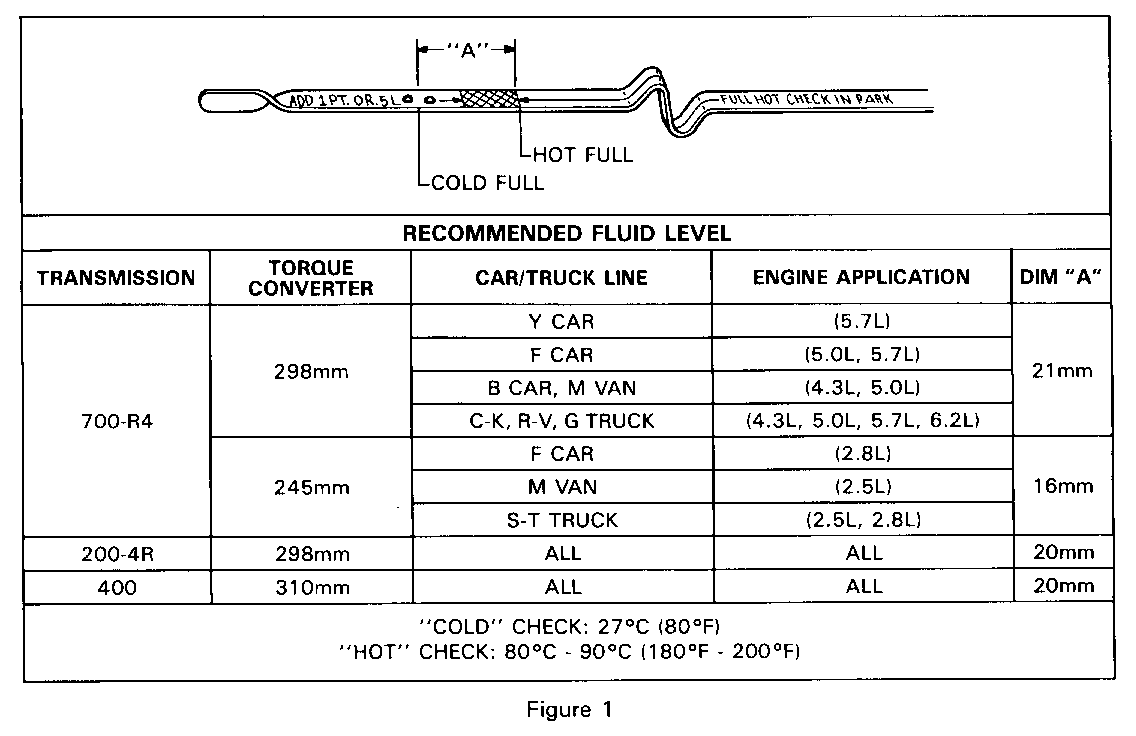
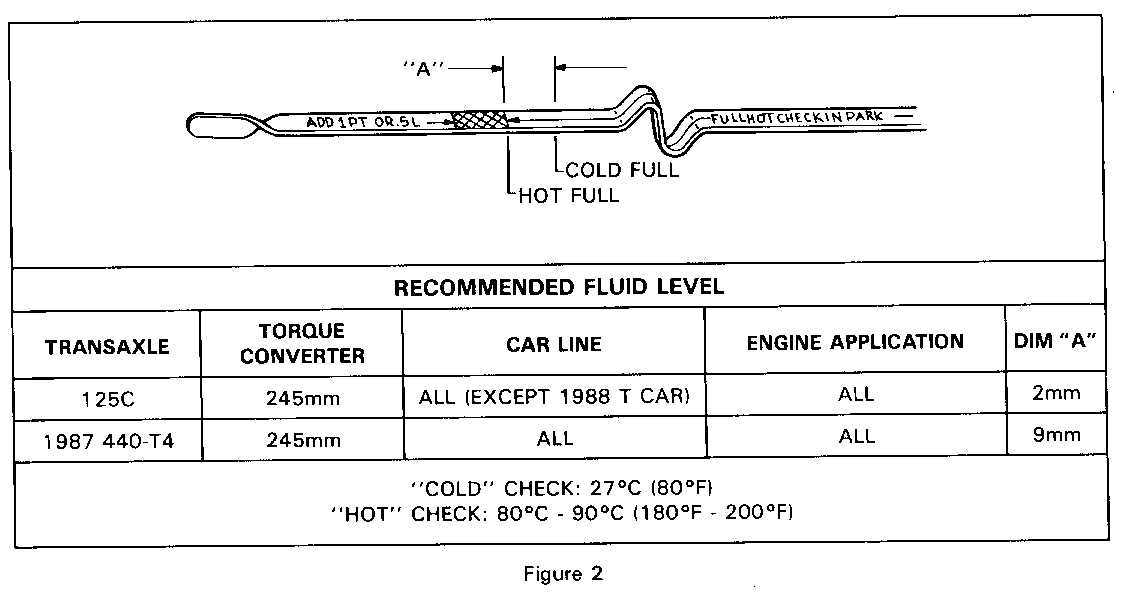
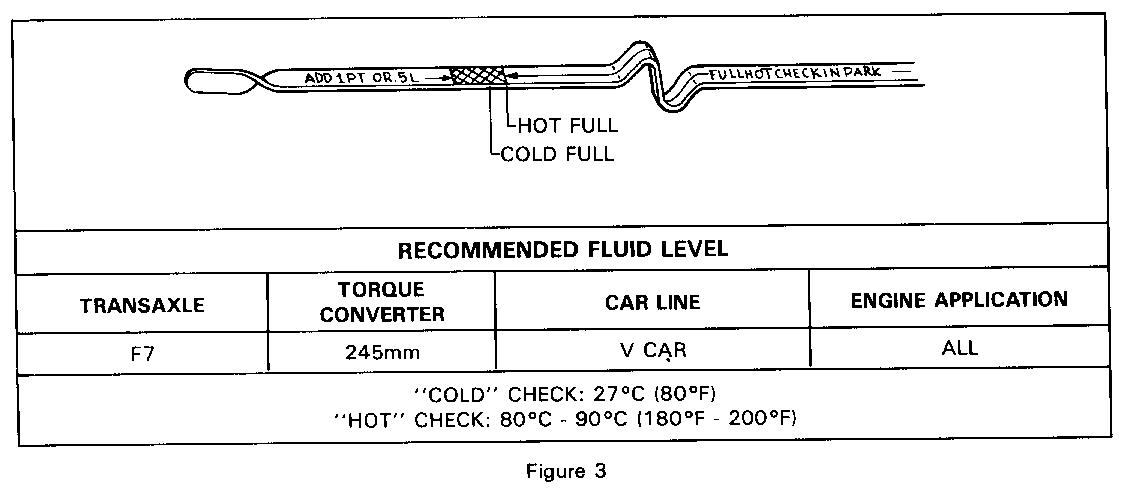
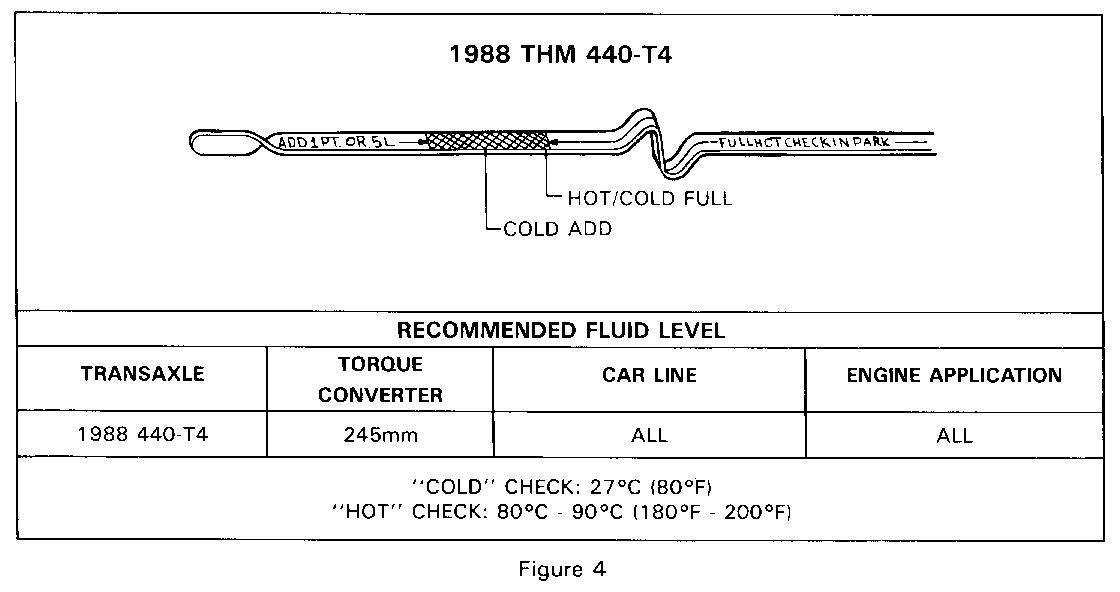
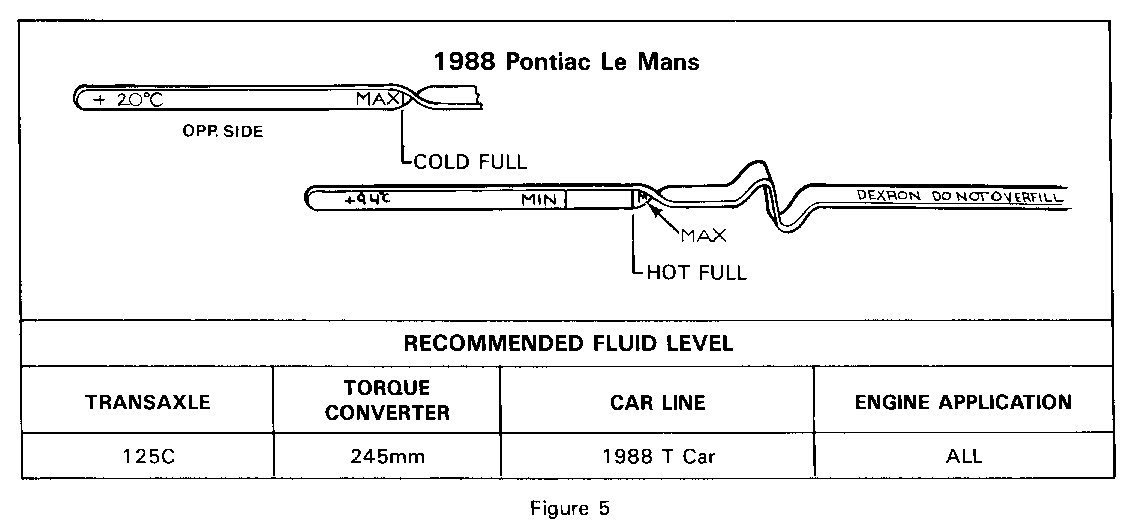
General Motors bulletins are intended for use by professional technicians, not a "do-it-yourselfer". They are written to inform those technicians of conditions that may occur on some vehicles, or to provide information that could assist in the proper service of a vehicle. Properly trained technicians have the equipment, tools, safety instructions and know-how to do a job properly and safely. If a condition is described, do not assume that the bulletin applies to your vehicle, or that your vehicle will have that condition. See a General Motors dealer servicing your brand of General Motors vehicle for information on whether your vehicle may benefit from the information.
